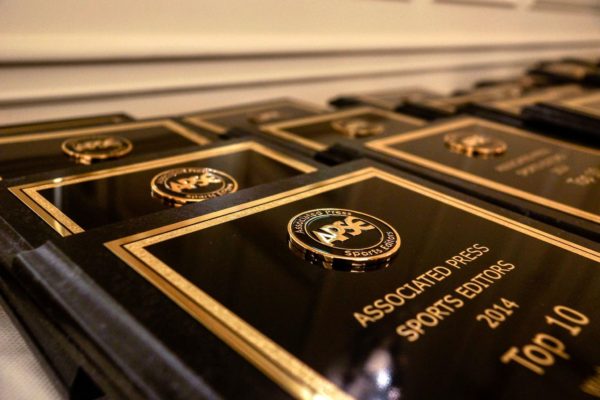STATE COLLEGE, Pa. — Philadelphia Daily News executive sports editor Josh Barnett recently saw first-hand how there is still room for storytelling in daily newspapers.
Look no further than Marcus Hayes’ April 7 piece on new Eagles defensive coordinator Juan Castillo, which the Daily News sent Hayes to South Texas for and which ended up being 105 inches.
During the reverse panel session of the Associated Press Sports Editors Mid-Atlantic Region meeting last week, students and editors exchanged in a back-and-forth on the state of the industry, with the survival of long-form takeout pieces providing a reminder that there is still room for strong writing beneath all the blogging and tweeting that has now become such an integral part of the job.
“It has to be the right piece,” Barnett said. “It depends on your ability to find good stories, do the leg work and make the case for it. If you can, you will get latitude.”
Chris Korman, content editor for the Baltimore Sun sports staff, echoed that sentiment, citing a piece Jeff Barker wrote in the Sun’s April 10 edition on Under Armour CEO Kevin Plank’s connection to University of Maryland athletics.
“There’s proof that people get it online,” said Korman, citing the fact that Barker’s story was the most-read piece on the Sun’s website that day.
The discussion on enterprise reporting was a refreshing contrast to what dominated the beginning of the session — Twitter.
Though most editors were hesitant at first to step into the unfamiliar territory of social media, all agreed it is now more important than ever for reporters to develop brands and for papers to make discussions two-way streets with readers.
Pittsburgh Post-Gazette Penn State reporter Ron Musselman said readers are now looking for more than just a regurgitation of what happened in the game they just watched, heightening the importance of analysis pieces and testing the lifeline of traditional game stories.
“The Eagles’ postgame show is sometimes as long as their game,” Barnett said. “The readers already know what happened. That’s why having a reporter with expertise on the subject is important.”
Matt Fortuna is a senior journalism major at Penn State and is the arts editor of the Daily Collegian after spending three years covering sports. He will spend the summer working for MLB.com, providing coverage of the Pittsburgh Pirates.





